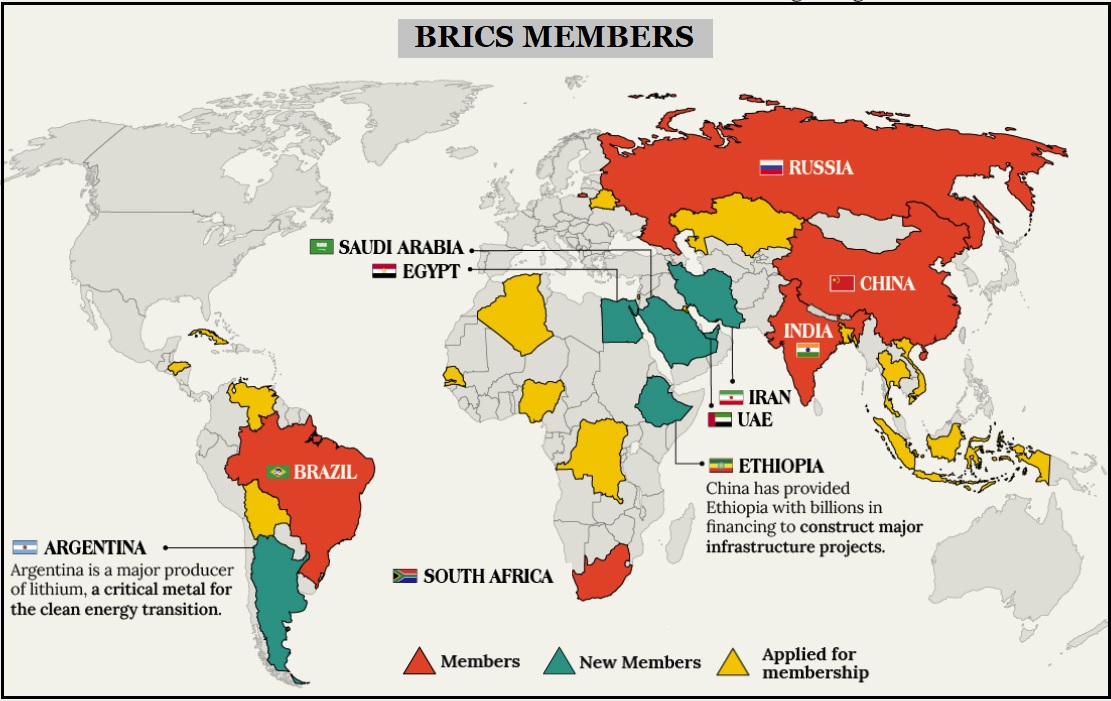7667766266
enquiry@shankarias.in
During the 15th BRICS summit, 5 member grouping has invited 6 countries to become new members.

|
Region |
Countries |
|
West Asia |
Iran, Saudi Arabia and United Arab Emirates |
|
Africa |
Egypt and Ethiopia |
|
Latin America |
Argentina |
|
Countries |
Importance |
|
Saudi Arabia |
35% of the oil production goes to China and India |
|
Iran |
Increased oil production despite US sanction, most of it goes to China |
|
Egypt and Ethiopia |
They are an important presence in the strategically important Horn of Africa and the Red Sea. |
|
Argentina |
2nd largest economy in Latin America |
|
Russia |
Major oil supplier to China and India, now looking at Brazil as market |
|
|
|
To know more about the need for BRICS expansion and common currency, click here
References